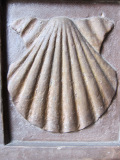SIEF Summer School 2022
'Urban Heritage on the Right Bank. Heritage in Warsaw as Seen from the Praga District'
26 June - 3 July, Warsaw
Convenor: Ewa Klekot, University SWPS & School of Form, Warsaw
The SIEF Summer School 2022 will focus on expressions of urban heritage in Warsaw, Poland, hosted by the Institute of Ethnology and Cultural Anthropology of the University of Warsaw.
Most Summer School activities will take place not in the University’s premises located on the left bank of the Vistula river, but in Praga, the right-bank eastern district of the city. Praga has always been a poorer sister of the capital city. An independent township surrounded by several old rural parishes, it was only formally incorporated into Warsaw’s city structure at the end of the eighteenth century. In the nineteenth and twentieth centuries, inhabited mostly by the working class, it was home to several bigger industries and a swarm of innumerable small, smaller, and minute factories, manufactories, and workshops. Until 1939, many of these were owned by the city’s Jews.
With the nationalization of industry after WWII, Praga became a district of “prywaciarze” (an offensive Communist propaganda term for privately-owned small businesses which provided consumer goods, often handcrafted, and services in the chronically scarcity-ravaged, centrally planned economy of the People’s Republic). The political transformations of the 1990s and early 2000s decimated craft traditions in Praga, with one of the first “market-friendly” reforms abolishing the guild licensing and the political and economic mechanisms that supported small local producers, who then had to confront both the flood of cheap mass-produced goods from China, as well as the allure of global brands, symbols of prosperity, opening, and westernization. Out of 282 small craft businesses registered in 1992 only 61 appeared in the Map of Craft in Praga made in 2016.
At the end of the 2010s, however, the surviving workshops of locksmiths, umbrella-makers, cobblers and shoemakers, lampshade-makers, tailors and dressmakers, etc., still in operation but far from prosperous, became a focus of interest for urban activists and artists, attracted by Praga’s urban heritage. Shortly after the establishment of the Warsaw Praga District Museum (2010), originally a grass-root initiative later incorporated into the City of Warsaw Museum as one of its local branches, a special revitalization programme for the Praga craft community was put in motion, with small businesses and craft traditions being recognized as one of the most characteristic features of the district’s heritage. Part of this programme consisted of encouraging a collaboration between Praga craftspeople and design students/young designers. At the same time, Praga offered post-industrial spaces and installations to the “new craft community,” or to educated urbanities trying to make their living from pursuing various craft and maker activities. The District Museum will be a Summer School partner and is the venue we will use throughout.
Format
Each day will feature a keynote lecture and group workshop discussions, along with walking field workshops and study visits to the Museum of Warsaw, Museum Polin, Museum of Warsaw Praga, and meetings with local heritage activists and officials. The working language of the programme will be English.
Credits
Participants can earn a maximum of 3 credits from the University of Warsaw.
Among the teachers
Regina Bendix (Georg-August University in Gottingen), Michał Murawski (University College of London), Hanna Schreiber (University of Warsaw), Nevena Škrbić-Alempijević (University of Zagreb).
Applications
We invite applications from PhD students interested in our theme and/or in working on urban heritage. Priority will be given to current PhD students, but applications from other advanced students and young scholars wo have just finished their thesis will also be considered. Applications should consist of (1) a CV, (2) a letter of intention explaining the Applicant’s interests and the relevance of their PhD project proposal (max. 450 words). Applications should be sent by email to sief(at)meertens.knaw.nl before 31 December 2021. Successful applicants will be notified by email no later than 15 January 2022
Fees, Accomodation and Travel
There is a registration fee of 20€ for participants, who are expected to take part in the full duration of the Summer School. The organizers will provide accommodation in a student dormitory, but, unfortunately, we are unable to reimburse travel expenses, so please inquire at your university and other sources to secure travel funding.
Please feel free to contact us for specific questions about the programme or the application.
Ewa Klekot
eklekot(at)sof.edu.pl

View on the City of Warsaw from the right bank.

Warsaw street views.




